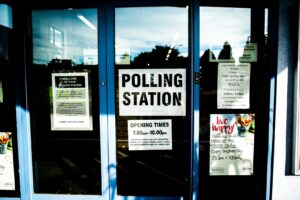Perhaps Labour’s most notable positive result in the UK, former Wansdyke MP Dan Norris makes a surprise return to frontline politics after more than a decade since his parliamentary defeat to Jacob Rees-Mogg in 2010. Given Labour’s woes nationally, this has all the hallmarks of a surprise. But the Tories always had an uphill battle to keep the mayoralty for a second term following the retirement of former Mayor Tim Bowles.
First, the postponement of the 2020 Bristol City Council elections meant Labour-leaning Bristol generated extra voter turnout (40%) compared to B&NES (34%) and South Gloucestershire (31%). Combined with a larger electorate compared to the other authorities, this advantage was vital.
Second, and perhaps more crucially, was the narrowing of the field with fewer candidates drawing first and second preference voters from the major parties. A notable absence was former Labour election candidate John Savage whose 29,500 first preference votes in 2017 had to shift somewhere.
These factors defined the result. A significant portion of Mr Savage’s votes may have moved across to Mr Norris, particularly in B&NES and South Glos where Labour amassed more than 20,000 extra votes than 2017. By the time first preference vote counting started in Bristol, the turnout differential and electorate size made things almost impossible for the Tory candidate, Samuel Williams, to win.
So, is WECA now a Labour stronghold? Not so fast. In 2025, there will be no Bristol turnout differential. By then, North Somerset Council may have joined the three other councils and make the city region ultra-marginal once again.



